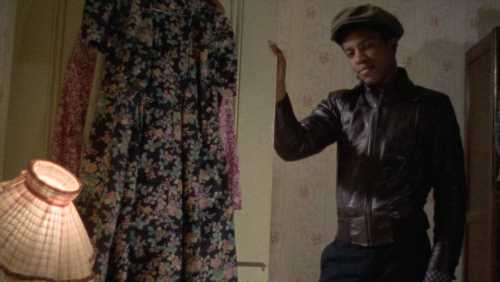The work of pioneering Black British filmmaker Horace Ové will be celebrated this fall with a BFI Southbank retrospective season titled Power to the People: Horace Ové’s Radical Vision.
A 4K restored version of “Pressure” (1976), the first full-length Black British film, which is an exploration of the concerns faced by emerging second-generation West Indians in Britain, will receive a joint restoration world premiere at the BFI London Film Festival and the New York Film Festival on Oct. 11. This precedes the film’s U.K.-wide cinema release by BFI Distribution and on BFI Player on Nov. 3.
The restoration, funded by the BFI Production Board and conducted by the BFI National Archive and The Film Foundation, was made possible with contributions from the Hobson/Lucas Family Foundation and the BFI philanthropy Pioneers of Black British Filmmaking consortium. It was accomplished in collaboration with the Ové family and producer Robert Buckler, utilizing the original 16mm negative, a 16mm release print and the magnetic final mix soundtrack.
Ové’s filmography spans four decades and encompasses drama, documentary, music examination, cultural exploration and visual arts. In an era when authentic Black narratives were underrepresented in mainstream media, Ové pushed boundaries at the BBC and Channel 4, creating films that portrayed a multicultural Britain, including “A Hole in Babylon” (1979), “The Garland” (1981) and “Playing Away” (1985).
His work has inspired a generation of diverse Black British filmmakers and artists, including Menelik Shabazz, John Akomfrah, Isaac Julien, Julien Henriques, Ngozi Onwurah, Steve McQueen, Amma Asante, Raine Allen-Mille and Dionne Edwards. Ové was knighted in 2022.
The retrospective season (Oct. 23-Nov. 30) will commence with an illustrated talk and a re-release preview of “Pressure.” The program will include films like “Baldwin’s N*” (1969), “Reggae” (1970), “King Carnival” (1973), “Skateboard Kings” (1978), “Black Safari” (1972), amongst others. The event will also screen films that influenced Ové’s cinematic style, such as “La Dolce Vita” (1960), “Bicycle Thieves” (1948) and “Pather Panchali” (1955).
Read More About:
Source: Read Full Article

